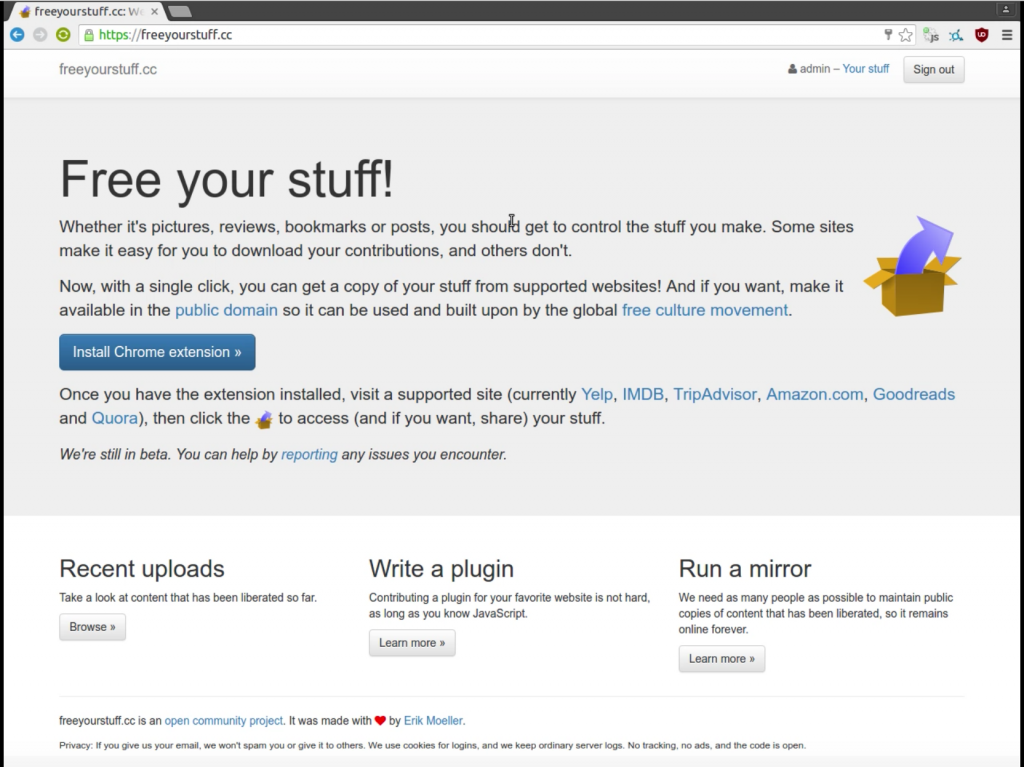
This guest post is by Erik Moeller, former Deputy Director of the Wikimedia Foundation, the organization behind Wikipedia, from 2008 to 2015. He co-organized the migration of Wikipedia to the Creative Commons CC-BY-SA license, co-authored the Definition of Free Cultural Works, and instigated the world’s largest repository of exclusively freely licensed media, Wikimedia Commons.
Thanks to the free culture movement, vast knowledge repositories like Wikipedia and StackExchange allow content to be re-used freely and built upon, and many major sites offer Creative Commons licensing as part of their user interfaces.
Yet there’s one area in which free culture has made very little progress to date: online reviews. Sites like Yelp, IMDB, Amazon.com, TripAdvisor, Goodreads, and others rely on millions of users to review products and services, but the resulting text and media are licensed only to the operating companies and not available for re-use, which means reviews are stuck in silos.
They may disappear at a moment’s notice. They can’t be translated, remixed or built upon, outside the narrow exemptions granted by fair use. Reviews could be the glue that connects a lot of existing free and open information, including Wikidata and OpenStreetMap if only they were freely licensed.
I believe that we can begin to change the status quo. To that end, I created an open source browser extension, freeyourstuff.cc, which lets you download your reviews for supported sites and, optionally, release them under CC-0, CC-BY or CC-BY-SA, the three Creative Commons licenses consistent with the Definition of Free Cultural Works. freeyourstuff.cc is not limited to reviews and is easy to extend. Here’s a quick video (YouTube version) that shows how it works.
I am also working on a project to build a free and open source community around reviews (of anything!): lib.reviews. We’re still in the early stages (video walkthrough / on YouTube), but if you want to get involved, follow us on Twitter, send us a message, and we’ll send you an invite code to get started.
By building these tools, we hope to go beyond the transactional consumer culture of online review sites, and make it easy to investigate other facets of a product or experience, such as the environmental impact or labor practices associated with it.
Free culture already enriches our world in immeasurable ways. Let’s take a step closer to a world in which sharing freely is the norm, not the exception.






